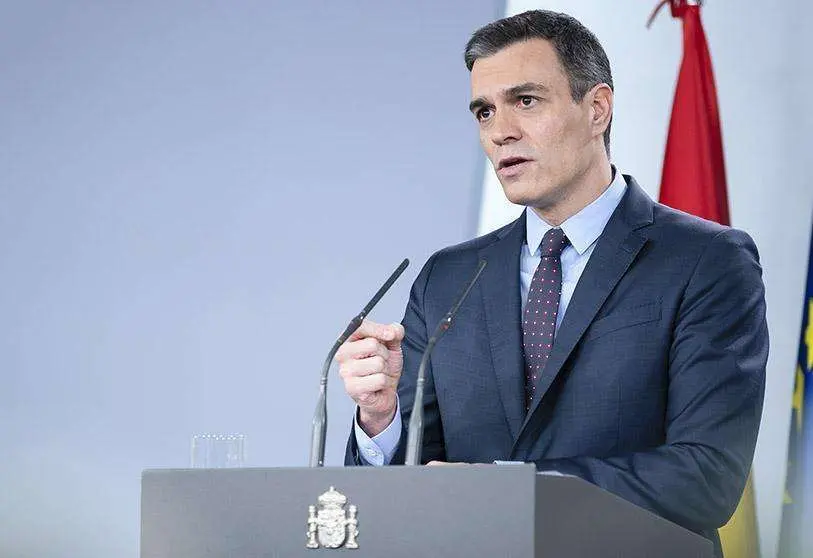España permite a Marruecos la utilización del gasoducto Magreb-Europa en un nuevo signo de acercamiento

Algeria decided in August to sever bilateral relations with Morocco. Festering rivalry over regional hegemony and the divisive issue of Western Sahara caused the rift, which resulted in the closure of the Maghreb-Europe gas pipeline in November. The gas infrastructure, which connected Algeria to the Iberian peninsula via Morocco, had been supplying a large part of the two countries' energy reserves for 25 years.
Algiers terminated the contract with Rabat, dealing a severe blow to the Alawi kingdom, which is still trying to recover. Morocco received some 100 million euros a year in "rights of passage", variable according to the volume of transit, and allowed the production of 10% of its national electricity through the Tahaddart and Ain Beni Mathar power stations. The heavy losses set off alarm bells.
Despite assurances that there would be no supply problems, Morocco then began to negotiate with Spain a possible parallel agreement that could cover its energy needs. The proposal put forward by Rabat involved acquiring liquefied natural gas (LNG) on the international market and then sending it to Spain, a necessary step for regasification, and using the Maghreb-Europe pipeline to transport it to Morocco, the beneficiary of the energy.

On Wednesday, after more than two months of negotiations, the Spanish government gave the green light to the project. The Ministry for Ecological Transition and the Demographic Challenge, headed by Teresa Ribera, has assured in statements to Bloomberg that Morocco will be able to use the Spanish liquefied natural gas terminals. A version confirmed by Ministry sources to Europa Press. In this way, Spain has made a commitment to Morocco to guarantee supply.
Government approval is not enough. For the plans to go ahead, the Spanish network operator Enagas SA - in which the State has a 5% stake - will have to reach an interconnection agreement with Morocco.
The government has also assured that the Alawi kingdom will be able to carry out the process "with total transparency", without turning its back on Algeria. These words suggest that the Algerian government of Abdelmadjid Tebboune is aware of the terms of the agreement. The agreement involves the reopening of the Maghreb-Europe gas pipeline, which has been unusable since the contract was terminated in November.
Algeria has not commented on the matter. Its reaction will be decisive, as the North African country is Spain's largest gas supplier and maintains the Medgaz underwater pipeline, connected to the Perdigal beach in Almeria, recently extended following the agreement between Naturgy and its Algerian ally Sonatrach. Through this route, 10 billion cubic metres of gas reach Spain every year.
Despite the deterioration in their relations, broken since May by the admission of the Polisario Front leader to a hospital in Logroño without Morocco's knowledge, Morocco needs Spain's capacity to return liquefied natural gas to its gaseous state. A process that the Ministry of Ecological Transition has guaranteed on the basis of its trade relations, in the same way as "with any other partner or neighbour". But this aid seems to mean something more.

Rabat expected a positive response from Madrid. That is why it has been looking for a supplier since January. The Moroccan government intends to sign a purchase agreement for a minimum of five years, according to the Minister of Energy Transition and Sustainable Development, Leila Benali. Benali also revealed that the cabinet heard several offers from a small group of traders, to whom she advanced that they could send the cargoes directly to Morocco once it has a floating terminal to import LNG.
The news has coincided with the visit of the President to the United Arab Emirates. From the Dubai Expo, Pedro Sánchez has sent a new message of understanding with Rabat. "We have always considered Morocco a strategic ally in many fields, such as immigration, economic development and security. We are looking forward to strengthening this bilateral collaboration," he said when asked about the state of their relations.
Despite the agreement on energy, relations remain broken. Morocco's ambassador to Spain, Karima Benyaich, has not returned to Madrid since the outbreak of the diplomatic crisis in May, aggravated by the irregular entry of 10,000 people into Ceuta. The signs of détente promoted by Moncloa and Zarzuela do not seem to have had any effect, and a definitive reunion seems complicated, because for Morocco the solution lies in Spain's recognition of its sovereignty over Western Sahara, something that is not on its agenda.








